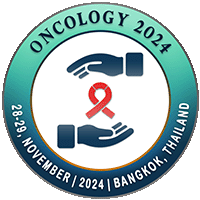
Agnieszka Jagiello-Gruszfeld
Maria Sklodowska-Curie National Institute of Oncology-State Research, PolandTitle: Breast Cancer in the Elderly
Abstract
Breast cancer is a serious health problem in the elderly female population. The approach to treating healthy women aged 65–70 years should be like treating younger patients with a similar stage and biological subtype of breast cancer. Greater individualization of treatment is necessary in the case of patients with worse parameters of functional efficiency and features of the frail syndrome. It should also be emphasized the need for closer cooperation with geriatricians, especially when defining the management plan and conducting systemic treatment in this group of patients. There is also a great need for research into the proper selection of treatment in elderly breast cancer patients. This is especially important in groups of patients with early and locally advanced breast cancer. Cancer is age-related. Increased life expectancy means that cancers in the elderly are becoming ever more common. More than three-quarters of cancer deaths are among those aged 65 years and older, and more than half among those are aged 75 years and older. This poses a challenge, especially for clinical oncologists, when choosing systemic therapy, due to the specificity of this group of patients. Unfortunately, the group of elderly patients are still underrepresented in clinical trials evaluating new cancer therapies. As a result, there is much less evidence-based information to guide proposed medical management.
Many publications emphasize that older patients are less likely to receive the most effective forms of systemic therapies. This can lead to poorer treatment outcomes and negatively affect patients’ survival rates. An important problem for the clinical oncologist is the comorbidities, which occur much more frequently in the elderly versus the younger population. Regrettably, comorbidities happen to be treated suboptimally, especially in people with no family. support or care, which can cause additional problems complicating decisions about systemic therapy. Access to systemic therapy in the elderly population can be significantly hampered for social and economic reasons, especially for patients, who live a considerable distance from oncological centers and find it difficult to come to regular visits. This factor is less important when it comes to other types of oncological therapies, namely surgery and radiation therapy, as both are not stretched over time and, if necessary, a patient may be hospitalized until the completion of therapy. In the case of systemic therapy, patients need to visit the oncological center regularly (e.g. once a week or once a month), but they usually do not need to stay at the hospital for more than a few hours.
Biography
TBA

